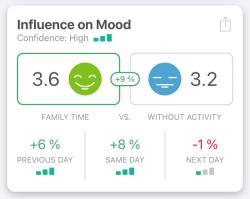What are the different aspects of psychology?
Psychology is a broad and diverse field that encompasses various aspects, each focusing on different dimensions of human behavior, cognition, and emotion. Here's a comprehensive overview of some key aspects of psychology:
Clinical Psychology:
- Clinical psychologists assess, diagnose, and treat mental health disorders. They work with individuals, families, and groups to address emotional and psychological issues.
Counseling Psychology:
- Counseling psychologists assist individuals in coping with personal and interpersonal challenges. They often work in educational or community settings.
Educational Psychology:
- Educational psychologists study how people learn and develop in educational settings. They may focus on instructional design, student motivation, and educational interventions.
Developmental Psychology:
- Developmental psychologists study human growth and development across the lifespan, examining physical, cognitive, and socio-emotional changes.
Social Psychology:
- Social psychologists investigate how individuals are influenced by social interactions, groups, and cultural factors. Topics include attitudes, conformity, and group dynamics.
Industrial-Organizational (I/O) Psychology:
- I/O psychologists apply psychological principles to the workplace. They study topics such as employee motivation, organizational behavior, and human resources.
Health Psychology:
- Health psychologists explore the relationship between psychology and physical health. They may study factors influencing health behavior, stress, and coping mechanisms.
Neuropsychology:
- Neuropsychologists examine the relationship between the brain and behavior. They often work with individuals who have neurological disorders or injuries.
Cognitive Psychology:
- Cognitive psychologists study mental processes such as perception, memory, problem-solving, and decision-making.
Experimental Psychology:
- Experimental psychologists conduct research to better understand fundamental psychological processes. They may specialize in areas such as perception, learning, or memory.
Forensic Psychology:
- Forensic psychologists apply psychological principles to legal issues. They may work in criminal profiling, witness testimony, or assessing individuals' competency.
Sports Psychology:
- Sports psychologists focus on the psychological aspects of sports and athletic performance, addressing mental skills, motivation, and team dynamics.
Positive Psychology:
- Positive psychologists study factors contributing to human well-being, happiness, and optimal functioning. They focus on strengths, positive emotions, and life satisfaction.
Environmental Psychology:
- Environmental psychologists study the interactions between individuals and their physical environments, examining how spaces affect behavior and well-being.
Consumer Psychology:
- Consumer psychologists explore the psychological factors influencing consumer behavior, including decision-making, preferences, and buying habits.
Cross-Cultural Psychology:
- Cross-cultural psychologists study how cultural factors influence human behavior, cognition, and emotion across different societies.
Evolutionary Psychology:
- Evolutionary psychologists examine how evolutionary processes have shaped psychological traits and behaviors in humans.
Human Factors Psychology:
- Human factors psychologists focus on the design and usability of products, systems, and environments to enhance human performance and safety.
This overview highlights the diversity within psychology, and many psychologists may integrate principles from multiple areas into their work. The field continually evolves as new research and perspectives emerge.
What are the primary domains or branches of psychology?
Psychology is a broad and multifaceted discipline that encompasses various fields dedicated to understanding human behavior, mental processes, and cognitive functions. The primary domains or branches of psychology include:
Biological Psychology: This branch explores the biological underpinnings of behavior and mental processes, examining how the brain, nervous system, and genetics influence human thoughts, emotions, and actions.
Cognitive Psychology: This field focuses on the cognitive processes involved in perception, learning, memory, attention, language, and problem-solving. It investigates how individuals acquire, store, and utilize information.
Developmental Psychology: This branch studies the physical, cognitive, social, and emotional development of humans across the lifespan, from infancy to adulthood. It explores how individuals change and grow throughout their lives.
Social Psychology: This field examines how individuals think, feel, and behave in social settings. It investigates the influence of social groups, norms, attitudes, and interpersonal relationships on human behavior.
Clinical Psychology: This branch focuses on the assessment, diagnosis, treatment, and prevention of mental disorders. Clinical psychologists work with individuals, families, and groups to help them improve their mental health and well-being.
How do cognitive, behavioral, and developmental aspects differ within psychology?
Cognitive, behavioral, and developmental aspects represent distinct but interconnected approaches within psychology. Each area sheds light on different facets of human experience and behavior.
Cognitive Psychology: Cognitive psychology delves into the internal mental processes that underlie human behavior. It explores how individuals perceive, learn, remember, and process information, shedding light on the mechanisms behind thinking, decision-making, and problem-solving.
Behavioral Psychology: Behavioral psychology focuses on observable behaviors and their relationship to environmental stimuli. It emphasizes the role of conditioning and reinforcement in shaping behavior patterns and seeks to understand how external factors influence human actions.
Developmental Psychology: Developmental psychology examines the changes and patterns of growth that occur throughout the lifespan. It explores how individuals develop physically, cognitively, socially, and emotionally from infancy to adulthood, tracing the trajectory of human development.
What are the interdisciplinary aspects of psychology?
Psychology has a rich history of collaboration with other disciplines, drawing upon insights from diverse fields to deepen understanding of human behavior and mental processes. Some key interdisciplinary aspects of psychology include:
Neuroscience: The integration of psychology with neuroscience has led to significant advancements in understanding the biological basis of behavior and mental processes. Neuroscientific techniques like brain imaging and neural recording provide valuable insights into the neural correlates of cognition, emotion, and behavior.
Sociology: Psychology and sociology share a common interest in understanding human behavior in social contexts. Interdisciplinary collaborations explore how social structures, norms, and group dynamics influence individual thoughts, emotions, and actions.
Anthropology: Psychology and anthropology intersect in the study of human behavior and culture. Cross-cultural research examines how cultural values, beliefs, and practices shape individual experiences, mental processes, and behavior patterns.
Education: Psychology plays a crucial role in informing educational practices and improving teaching methodologies. Research in cognitive psychology, developmental psychology, and social psychology contributes to understanding how individuals learn, develop, and interact in educational settings.
Law: Psychology is increasingly applied in legal contexts, providing expert testimony on eyewitness memory, jury decision-making, and criminal profiling. Psychological principles inform forensic investigations, criminal rehabilitation, and juvenile justice systems.
These interdisciplinary connections highlight the multifaceted nature of psychology and its ability to draw upon diverse perspectives to address complex questions about human behavior and mental processes.












